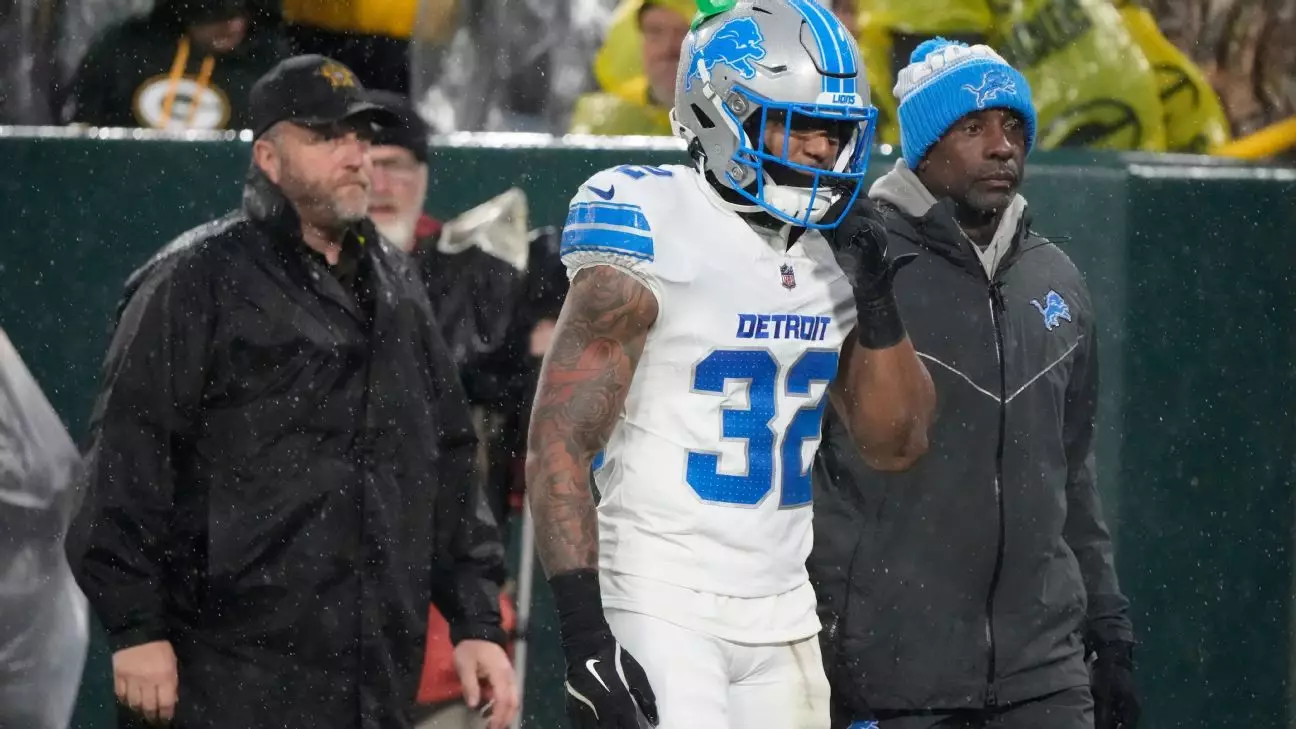In the high-stakes world of professional sports, where emotions run high and pressure mounts, athletes often find themselves walking a fine line between passion and professionalism. Recent events surrounding two key players from the Detroit Lions—Brian Branch and Jameson Williams—offer a microcosm of how these dynamics play out, especially in the context of team culture, personal accountability, and growth.
Brian Branch’s recent ejection during a game against the Green Bay Packers is a case study in the importance of maintaining composure in tumultuous moments. Branch was penalized for a late hit on receiver Bo Melton and compounded this misstep by reacting to the crowd in frustration, leading to an additional unsportsmanlike conduct penalty. Rather than brushing the incident off with a humorous remark, Branch recognized the seriousness of his actions, emphasizing that his emotional response does not reflect his character or intentions.
His apology post-game reveals crucial elements of accountability and humility. “I most definitely agree with the call,” Branch stated, acknowledging both the referee’s decision and his need for improvement. The statement underscores an essential trait for any athlete: the ability to self-reflect and adapt. Moving forward, Branch’s recognition of the need to “move my target down” indicates a commitment to learning from mistakes, which is vital in an environment where split-second decisions are part of the game.
While Branch navigates the ramifications of his impulsive behavior, Lions head coach Dan Campbell’s handling of Jameson Williams’ return from suspension showcases a contrasting approach to managing player welfare. Williams served a two-game suspension for violating the NFL’s substance policy and spoke about the significance of Campbell’s support during this turbulent phase. His assertion that he has learned to “move smarter” highlights a critical growth mindset, one that involves tactical introspection about one’s actions and their potential ramifications.
Campbell’s decision to reintegrate Williams into the offensive lineup without hesitation signals an affirmation of trust and a belief in redemption. “I expect him to be ready to roll,” Campbell confidently proclaimed. This faith fosters a team culture where players feel supported—even during their struggles—ultimately contributing to a more unified locker room atmosphere. Williams’ comments about Campbell’s faith reflect the importance of leadership in shaping an athlete’s response to adversity and misjudgments.
The juxtaposition of Branch’s and Williams’ recent experiences illustrates the complex interplay between personal growth and team dynamics. In professional sports, organizations often grapple with the challenge of holding players accountable while simultaneously fostering an environment conducive to personal and professional development. As Branch journeys toward correcting his missteps, Williams provides an example of resilience through leadership support.
Critically, the accountability displayed by both players serves not only as a reflection of their maturity but as an indicator of a healthy team culture. Athletes who can openly apologize and accept their shortcomings while placing an emphasis on learning pave the way for a team atmosphere that values both performance and personal growth. Such a culture can ultimately boost success on the field, as players feel more empowered to address their flaws without fear of judgment.
In essence, the events surrounding the Detroit Lions serve as pivotal illustrations in understanding the emotional and psychological dimensions of professional athletics. Brian Branch’s incident highlights the necessity of managing emotions and maintaining composure, while Jameson Williams’ return signifies the importance of mentorship and accountability in overcoming personal challenges. Together, these narratives exemplify the balance between discipline and development within team dynamics—factors that can potentially define a successful sports franchise. Ultimately, the Lions’ ability to learn from these experiences may not just enhance individual players but can also be a powerful catalyst for collective success in the challenging landscape of professional football.


Leave a Reply